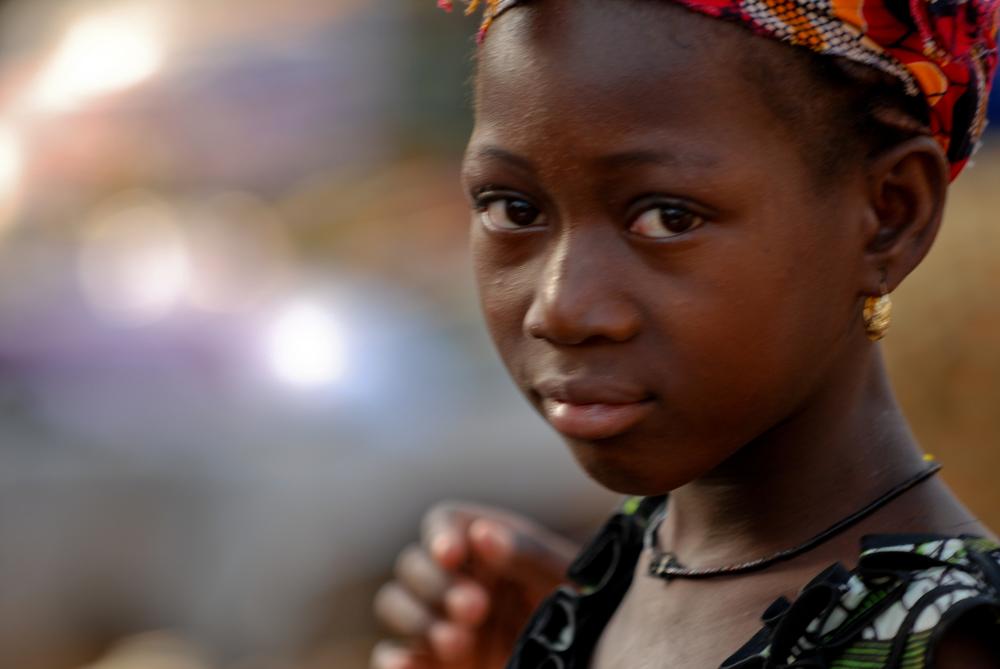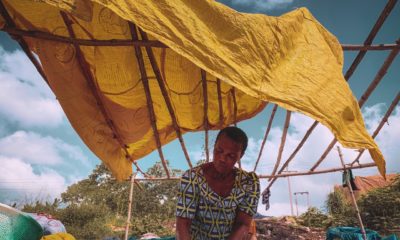Features
Family Planning & Its Impact Within Economically Disadvantaged Nigerian Communities
Being poor in Nigeria means that you do not have access to education, a proper healthcare system, enough sensitization and the economic know-how of making proper decisions. This means that there’s a bigger chance that poor people will fall prey to cultural, societal, religious and less-enlightened opinions surrounding child making and finances – compared to the rich who are better educated and largely ‘exposed’.
 Recently, there was an ‘argument’ on social media on whether poor people should have kids or not. Some people were of the opinion that as long as you cannot cater for the children, you have no business bringing them into this world. Other people argued that that point of view is too elitist and the world cannot/should not wage war against the poor. After all, life happens to us all and poor people are here to stay.
Recently, there was an ‘argument’ on social media on whether poor people should have kids or not. Some people were of the opinion that as long as you cannot cater for the children, you have no business bringing them into this world. Other people argued that that point of view is too elitist and the world cannot/should not wage war against the poor. After all, life happens to us all and poor people are here to stay.
Just with every other country in the world, poor people in Nigeria seem to have the most kids and with the increase in the Nigerian population, it is easy to point fingers at them, get angry and castigate them for having many kids. However, we must first understand that, compared to the rich, poor people have many economic and cultural constraints and factors that fuel their decision to have more kids.
First of all, who can be categorized as ‘poor’? In Nigeria, we are all poor. {Click here to read our article on this}
The term ‘poor’ is absolutely relative. For a billionaire, a poor person could be someone with just 6 figures worth of money in their accounts, yet to someone who earns money in 4-5 figures, a 6 figure earner is ‘rich’. When addressing the issue of whether poor people should be encouraged to have kids or not, we need to define – as clearly as we can – who we can categorically call ‘poor’.
Currently, almost 90million Nigerians are estimated to be living in abject poverty. This means that these people have no access to basic amenities like housing, clothing, food, water, toilets, power supply and so on. These people live below $1, which is just 355 Naira, every day. According to 2009 statistics, 92.1% of Nigerians were estimated to be living below $5, which is 1,775 Naira, daily. As of 2018, 152 million Nigerians were living under $2, which is 710 Naira, daily.
The controversial question is why do poor people – who seemingly cannot afford to feed themselves – bring more kids into this world? After living in extremely unfavourable conditions, why do you want to subject another human to what you’re going through?
Being poor in Nigeria means that you do not have access to education, a proper healthcare system, enough sensitization and the economic know-how of making proper decisions. This means that there’s a bigger chance that poor people will fall prey to cultural, societal, religious and less-enlightened opinions surrounding child making and finances – compared to the rich who are better educated and largely ‘exposed’.
In many parts of Nigeria, there is the prevalent belief that “God gives children” and this same God will “take care of the children”. There’s also the saying that “children come with what they will eat from heaven”. This belief is well fueled by illiteracy, culture, religion and the ‘primitive minds’ of people. Cultural norms are major driving forces of fertility decisions, especially in Northern Nigeria where underage marriage and the Almajiri system are still at large. So if an average Aishat from the North grows up in an environment where it is perfectly normal to get married at 13 and have 8 kids before clocking 33, there’s a high tendency that she will turn out to have many kids. The way to prevent this is by providing proper education, developing better economic policies, and creating more sensitization, e.t.c. These are things poor people don’t have access to.
Another factor is that the averagely poor do not consider themselves to be so poor. ‘Averagely poor’ here refers to people who do not live in abject poverty but cannot still afford all that they want. These people are satisfied with providing for the children’s needs only and believe that extra things are just ‘luxury’. It is this type of people that will say “I drank pap as a kid and I was perfectly fine, there’s no need to buy cerelac for my kids”. These people ‘tend’ to have many kids because aside from the basic things like food, clothing, shelter – and perhaps, education, they have very little/no financial obligation to their kids. So while the rich believe they cannot raise a kid with 50k monthly income, the poor may see that income as ‘highly sufficient’.
We cannot rule out the high mortality rate of children as a factor for having many more children. You will be shocked to realize that some poor people have 5 or more kids with the fear that one or two of them might die. As of 2015, for every 1,000 Nigerian kids, 109 kids died before they clocked age 5. Lack of basic infrastructure like water, health packages, unhealthy environment, no balanced diet, and so on, are part of the many reasons why Nigerians lose their children at a young age. Unfortunately, the general solution they have come up for this problem, is to have more kids to make up for the ones lost.
Some poor people also see their children as an ‘insurance package’, an ‘investment’ that will pay off one day and pull them out of poverty. There’s the hope that when they have 8, 9, or 10 children, at least 2 or 3 of them will become rich and take care of them at their old age. Thus, children are the lottery ticket to riches.
To understand the root of this, you need to realize that there’s a quality VS. quantity mindset here. While the rich struggle to ensure their kids have that ‘perfect, stress-free life’ – quality, some poor people see their kids as the ticket to crawl out of poverty and have the good things of life – quantity. Again, one must consider that their lack of education, economic knowledge and exposure has, to an extent, influenced the way they view the world.
Unfortunately, children who are born poor tend to remain poor because they don’t have the economic platform and backings to break out of poverty. The cycle hardly ever breaks. Thus, poor children long for the good things of life, but their chances have already been stunted by the decisions of their parents. If wishes were horses, beggars will ride.
Lack of access to contraceptives/birth control pills or the cultural belief that contraceptives are not good is another factor to be considered.
As of 2017, only 15% of Nigerian women aged 15-49 used contraception for limiting and spacing of birth. Amusingly, about 85% of women and 95% of men reported knowing a contraceptive method. Why then do they not use it?
Myths and fear that contraceptives will scatter the womb, make the woman fat, and so on are still rampant. Although women (and men) know about contraceptives, their knowledge of it is very limited. On average, a Nigerian woman or man – aged 15-49 – knows about 5 out of the 15 methods of contraceptives.
On top of this, the most common methods cited were those that carry the highest risks of pregnancy. The most common method women cited was the pill (71%) which has a failure rate of 9% and can lead to nine unintended pregnancies per one hundred women a year.
Another thing is that as ‘cheap’ as these contraceptives are in Nigeria, poor people cannot still afford it. Contraceptives can be gotten for as low as 500 Naira, but remember that people who live in extreme poverty live below $1, which is just 355 Naira, every day. This automatically means that 90 million Nigerians cannot afford the cheapest form of family planning – but they’ll keep having sex. One way to salvage this is to make the economy better, so poor people can afford contraceptives.
In part of Nigeria’s efforts to manage the population and the spread of sexually transmitted diseases, the 2017 Nigerian budget showed a whooping ₦915 million will be spent for the provision and distribution of contraceptives (condoms) and even though condoms are free, many men have refused to ‘lick sweet with its wrapper’.
The truth of the matter is that the procreation rate of poor people cannot be policed – even China had to relax on the one-child policy. The ‘poor’ cannot be stopped from having babies and the solution to having a developed nation is not to monitor the private parts of the poor, but to provide an enabling environment where they can get access to basic infrastructure, get jobs and thrive.
“The best antidote to the social challenge of overpopulation will lie in education, health, and crucially, greater economic opportunities. As most of the Western world has shown in the past few centuries, population control is not the answer, economic development is. So I daresay, give the poor economic empowerment, and let them have babies” – Derin Adebayo.
Furthermore, there’s a massive need for sensitization. Let Biliki and Vuruktu in your village – and city – know that children do not bring what they will eat from heaven. Yes, they are ‘blessing from God’, but they are not poverty alleviation schemes. Let every woman also be aware of the many forms of contraceptives and its benefits. Our medical practitioners need to do better also. When you ‘eye’ that young lady who comes for contraceptives and start preaching the gospel to her on how having sex will take her to hell, next time, she won’t show up.
Can we also make contraceptives for women free? Just like condoms!
As for Northern Nigeria and the early child marriage culture, hmmn, it is well.























